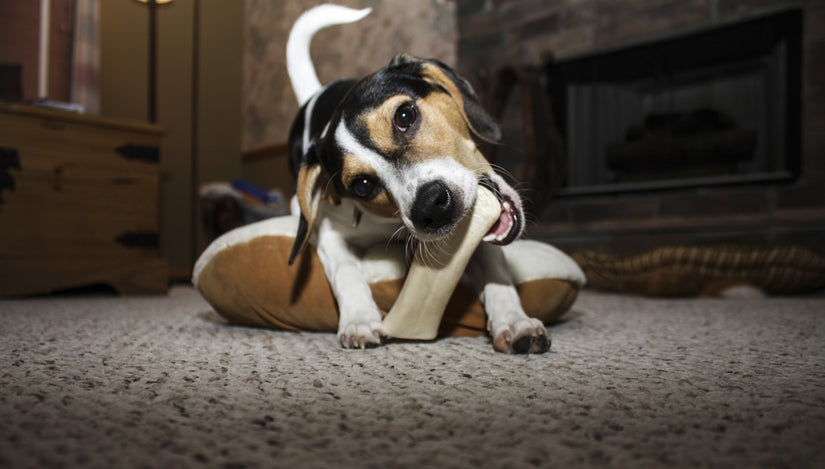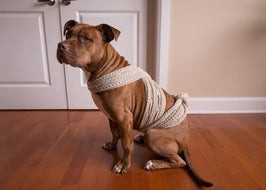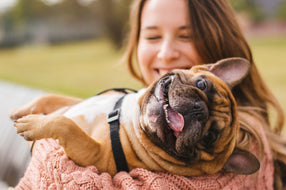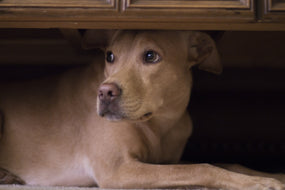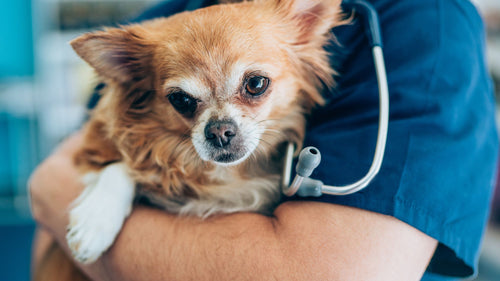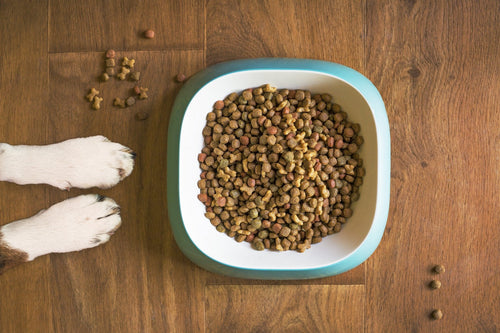Can You Give Bones to Dogs?
All dogs, without exception, love to gnaw bones, and the owners are happy to buy these inexpensive meat production waste for their pets. But can dogs be given bones, will they not harm the health of animals? We will try to answer this question in today's article.
Why Should a Dog Gnaw Bones?
important
Many owners find it very beneficial to give their dogs bones. This solid product supposedly keeps the teeth of animals sharp. But in fact, the bones do not sharpen a dog's teeth at all, but they can damage the enamel, even a tooth breakage is not excluded. So are the bones completely useless?
Bones in a dog's diet have several important tasks:
- Cleaning their teeth from plaque. The animal, gnawing a large femur, removes food particles stuck between the teeth, and brushes off the accumulated plaque, which is based on bacteria. But it is worth noting that it is not the bare bones themselves that clean the teeth, but the cartilages that frame the ends of the bones;
- Massage of gums. Moderately hard bones and cartilage (always after heat treatment - at least soaked in boiling water for 5 minutes), when the dog gnaws them, press on the gums, massaging them and preventing the development of such ailments as periodontal disease and gingivitis.
- It is also important to mention that bones are great natural toys for dogs. Many dogs can play with the bone for a long time, without requiring attention from the owner.
What Ones for Dogs are Prohibited?
Veterinarians agree that bones are not the best food for dogs.
And that's why:
- Raw pork bones are dangerous for dogs due to helminth infection. In addition, the meat on such bones is too fat for dogs;
- Giving chicken bones to dogs is also prohibited. They are small and fragile, almost any dog can easily swallow them, biting into several sharp fragments. These pieces of bone can not only injure the digestive tract, but literally lie in the stomach or intestines for years;
- Turkey bones are very hard and much larger than chicken bones. They can easily choke a dog or damage the esophagus, stomach or intestines. In general, the tubular bones of any bird are taboo for a dog, an animal can die from internal bleeding;
- Goose and duck bones for dogs are prohibited. First of all, they are quite large, since such a bird is slaughtered in adulthood. And secondly, they are very sharp, and therefore dangerous. When eating such bones, the animal can easily suffocate if a sharp fragment gets stuck in the respiratory system;
- Rabbit bones are small and very sharp, and therefore dangerous. They can injure the dog's tongue and gums, get stuck in the throat, or injure the stomach. The only thing such bones are suitable for is cooking broth, which can then be added to the dog's porridge (by the way, you can cook broth on bird bones);
- Fish with bones should not be given to the dog, even if the bones are very small. They can easily get stuck in the throat, which can lead to breathing difficulties;
- Raw bones of questionable quality. Needless to say, bones for dogs should be purchased at specialized points where veterinary and sanitary examination is carried out. Believe me, a stale bone can cause severe poisoning in a dog, and a bone from a sick animal generally threatens a doggie with death;
- Boiled bones (more precisely, well-boiled) are also quite dangerous, as they clump in the dog's digestive tract, causing intestinal obstruction. If the animal accidentally swallowed a "forbidden", say, boiled chicken or rabbit bone, it is better to give it a little petroleum jelly oil (liquid paraffin) so that the uninvited spicy "guest" leaves the animal's digestive system as soon as possible. For 10 kg of the dog's weight, 0.5 tablespoons of vaseline oil should fall;
- Lamb bones. They are not as dangerous as anything mentioned above. But it is important to ensure that these are, firstly, spongy bones, and secondly, from a young animal, that is, not hard enough.
In addition to injuries to the gastrointestinal tract, frequent feeding of bones to the dog is fraught with the development of a terrible disease - peritonitis. This is an inflammation of the abdominal cavity, which is often caused by mechanical trauma in the form of injury to the digestive system with sharp fragments of bones.
What Bones Can You Give to Dogs?
What bones should not be given to dogs, we found out above. And what bones can you give to the dog? It is believed that the only acceptable option for an adult animal is the bones of the thigh of a cow or bull, or rather, their articular parts. They are otherwise called sugar bones for the pure white color of their heads, similar to sugar. You can give the dog such beef bones so that it gnaws and eats cartilage, gnaws at the meat, and massages the gums a little. But the dog cannot be allowed to gnaw moslak for hours in order to avoid injury to the teeth. The fact is that prolonged contact with the hard surface of the bone leads to inevitable grinding of the teeth. It is best to pamper your dog with bones no more than 1-2 times a month.
Puppies can eat beef ribs, or rather cartilage and meat that are attached to the bone, under the master's supervision. Bare rib bones from babies need to be taken away in time.
At What Age Can a Puppy Be Given Bones?
Well, if you can sometimes feed a dog with bones, then at what age? Veterinarians believe that the earliest age when a dog can be treated with a bone is 3-4 months. And then, provided that the bones are large enough that the puppy will definitely not be able to chew. When all the cartilage and meat are eaten, the bone must be taken from the baby dog without regret so that he does not bite off and swallow its sharp fragment. When giving a small puppy a bone, the owner must watch him relentlessly.
From All Of the Above, the Following Conclusion Follows:
- The only bones suitable for dogs are beef;
- Dogs should only be given bones in the presence of the owner. And it doesn't matter what age the animal is: both an adult dog and a puppy can suffer from a sharp bone fragment;
- It is better to give the dog bones after a short heat treatment, but always from a healthy cow. You shouldn't buy bones in questionable places, even if they are very cheap;
- Old, stale bones are dangerous (including those that the dog can dig out from the ground while walking). They can seriously poison the animal;
- Bare bones (without meat and cartilage) are completely useless. The dog can neither get enough nor get any nutritional benefit from them. The only advantage of bones without cartilage and meat is that they can act as a toy for an animal;
- The dog can be periodically treated with beef bones (once or twice a month), but literally, you cannot feed the animal with bones (any) daily. Dogs require meat, which is usually very scarce on the bones;
- It is undesirable to give bones to those dogs that have problems with teeth and gums in order to avoid injury. Also, it is better to refuse bones if the animal has problems with the digestive system, for example, with constipation;
- Do not regale the bones of very young puppies, as well as older dogs. Their teeth can be harmed by hard bones. If desired, it is better to treat old pets with a tendon bone from a pet store;
- Any bone is potentially dangerous (even large beef). Therefore, it is better to always keep the number and address of the veterinary clinic on hand so that, if necessary, immediately deliver the dog to see a doctor. If, after treating it with a bone, the dog begins to choke, cough, if it is salivating profusely, vomiting is present (or there is an urge to vomit), there is blood in the feces or vomit, then the visit to the doctor cannot be postponed until later.
Take care of yourself and your pets.
With love to your dogs, Dogrook!
